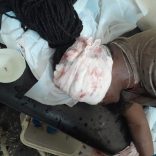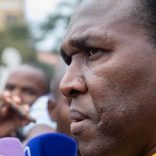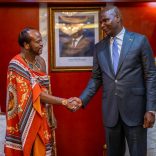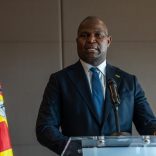Mozambique: Mondlane supporter victim of murder attempt - AIM report
Opinion: Will heads roll? – Joseph Hanlon

In China, a few corrupt officials are made examples and executed. In Mozambique, some donors want at least metaphoric heads to role. But Frelimo’s history suggests otherwise.
Perhaps the best model of what will happen is an old story. As a condition of IMF support, the then People’s Development Bank (BPD) was privatised in 1997 to the Southern Bank Berhad (SBB) of Malaysia (30%) and Invester (30%), a Mozambican company headed by Octavio Muthemba, former Industry Minister and chair of SPI – Gestão e Investimentos, the Frelimo party holding company. The state kept 40% of the renamed Banco Austral. Through a mix of direct theft and bad loans to themselves and others in the Frelimo elite, the bank was drained of at least $150 million and then handed back to the state in 2001. Antonio Siba-Siba Macuacua, the Bank of Mozambique’s head of banking supervision, was named head and tried to collect on some of the loans and prepare the bank for reprivatisation to ABSA of South Africa (later Barclays). In an unsuccessful attempt to stop the sale, Siba-Siba was murdered at the bank’s offices on 11 August 2001.
In 2009 and 2010, the Public Prosecutor’s Office (PGR) finally announced that no Mozambicans would be prosecuted for plundering and bankrupting Banco Austral or for the 2001 assassination. The Public Prosecutor’s Office (PGR) said it would not prosecute Muthemba, who was chair of the Banco Austral board of directors, Jamu Hassan and Omaia Salimo, who were members of the board, and Alvaro Massinga, who sat on the bank’s supervisory board, even through the four received large loans for themselves and their companies, knowing this was in violation of both the law (Lei 28/91) and the bank’s Credit Policy Manual. Three received loans in excess of $2 mn which were not being repaid. Donors forced a forensic audit of Banco Austral and made symbolic governance issues of the bank collapse and murder, for nearly a decade raising them each year in negotiations with the government – in the end, to no avail. (Mozambique News Reports and Clippings 160, 17 April 2010)
Some of those involved in the plunder and murder were identified inside Frelimo and were sent away, to Johannesburg, Washington and elsewhere, in 2002 – some with well paid jobs. In recent years, some have quietly returned to Maputo.
Similarly, Frelimo did not allow Joaquim Chissano to stand again for president in 2004 because of the aura of corruption that surrounded his presidency. After that, he kept a low political profile, but set up a foundation in Maputo, became an international elder statesman and mediator, and in 2007 won the $5 mn Mo Ibrahim prize (because he did not stand again). In recent years he has become more prominent in Mozambican politics.
There has only been one exception to this rule. Former Interior Minister Almerino Manhenje was convicted of corruption in 2012 and jailed. He had lost his protection within the party.
So, if Frelimo felt that the internal and external pressure was strong enough, it might help senior figures of the previous government to move to Johannesburg or Dubai or Paris and keep a low profile for a while. But no prosecutions are likely.
By: Joseph Hanlon













Leave a Reply
Be the First to Comment!
You must be logged in to post a comment.
You must be logged in to post a comment.